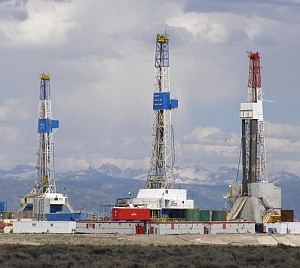An engineering research team at University of Colorado in Boulder will study the balance between natural gas development and its effects on ecosystems and communities. The five-year, $12 million study is funded by National Science Foundation under its Sustainability Research Network initiative.
The Colorado team led by environmental engineering professor Joseph Ryan will examine social, ecological, and economic aspects of the development of natural gas resources, while protecting air and water resources. The researchers plan to focus on the Rocky Mountain region, where natural gas development is increasing, as well as public concerns about its effects.
Ryan says the study will include industry practices for hydraulic fracturing, where pressurized water, sand, and chemicals are pumped into bores to crack rocks and free petroleum and natural gas for easier extraction. The team will evaluate the current state of drilling technology, the integrity of well bore casings, and natural gas collection mechanisms and processes.
“We all create demand for natural gas so we have to accept some of the outcomes of its extraction,” says Ryan. “Our goal is to provide a framework for society to evaluate the trade-offs associated with the benefits and costs of natural gas development.”
Team member and Boulder engineering colleague Harihar Rajaram will investigate hydrologic processes tied to potential risks of natural gas and oil extraction, including groundwater and aquifer systems, risks to water quality, and mitigation strategies requiring improvements in water treatment technology. Jana Milford, a mechanical engineering professor at Boulder, plans to monitor and model potential risks of natural gas and oil development to air quality.
In addition to engineers, the research team includes specialists in air and water quality, social sciences, public health, and information technology. The researchers will be advised by an external committee representing the oil and gas industry, regulatory agencies, environmental organizations, local governments, academia, and Native American tribes.
Institutions and organizations collaborating on the project include Colorado School of Mines, Colorado State University, the University Corporation for Atmospheric Research in Boulder, the National Renewable Energy Laboratory in Golden, Colorado, the National Oceanic and Atmospheric Administration, the University of Michigan, and California State Polytechnic University in Pomona.
Read more:
- Challenge Seeks Atmospheric Benzene, Butadiene Monitors
- Air Pollutants Found Near Hydraulic Fracturing Gas Wells
- Industry Consortium to Fund Fracturing Pollution R&D
- Study Outlines Regulatory Issues for Natural Gas Fracking
- University to Study Fracking and Methane in Drinking Water
* * *


 RSS - Posts
RSS - Posts
You must be logged in to post a comment.